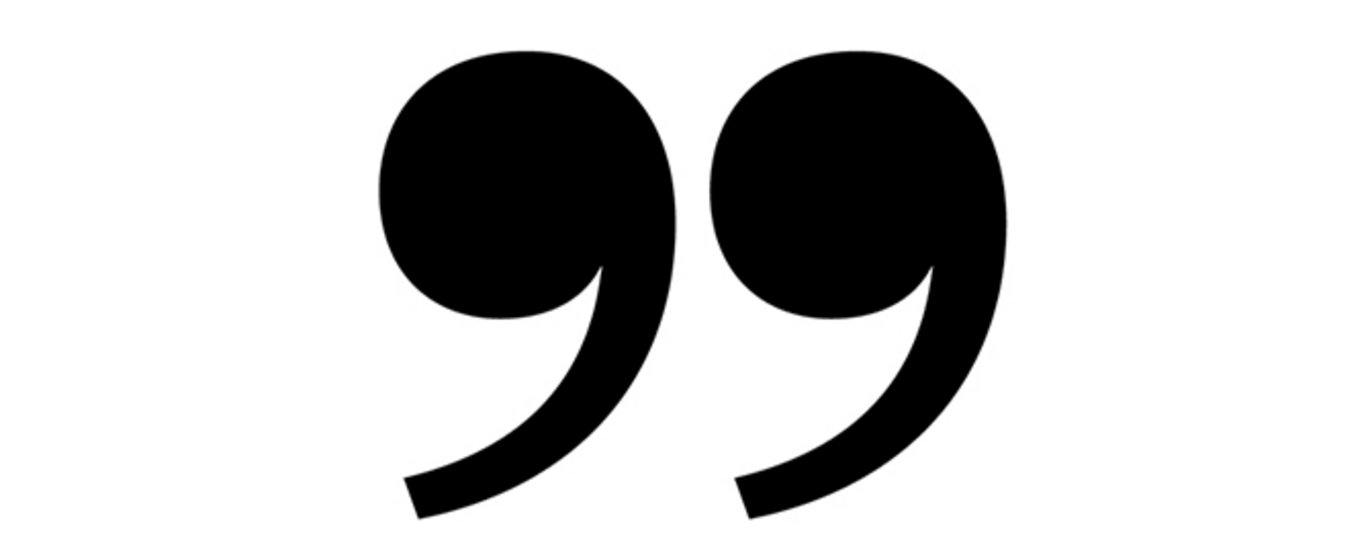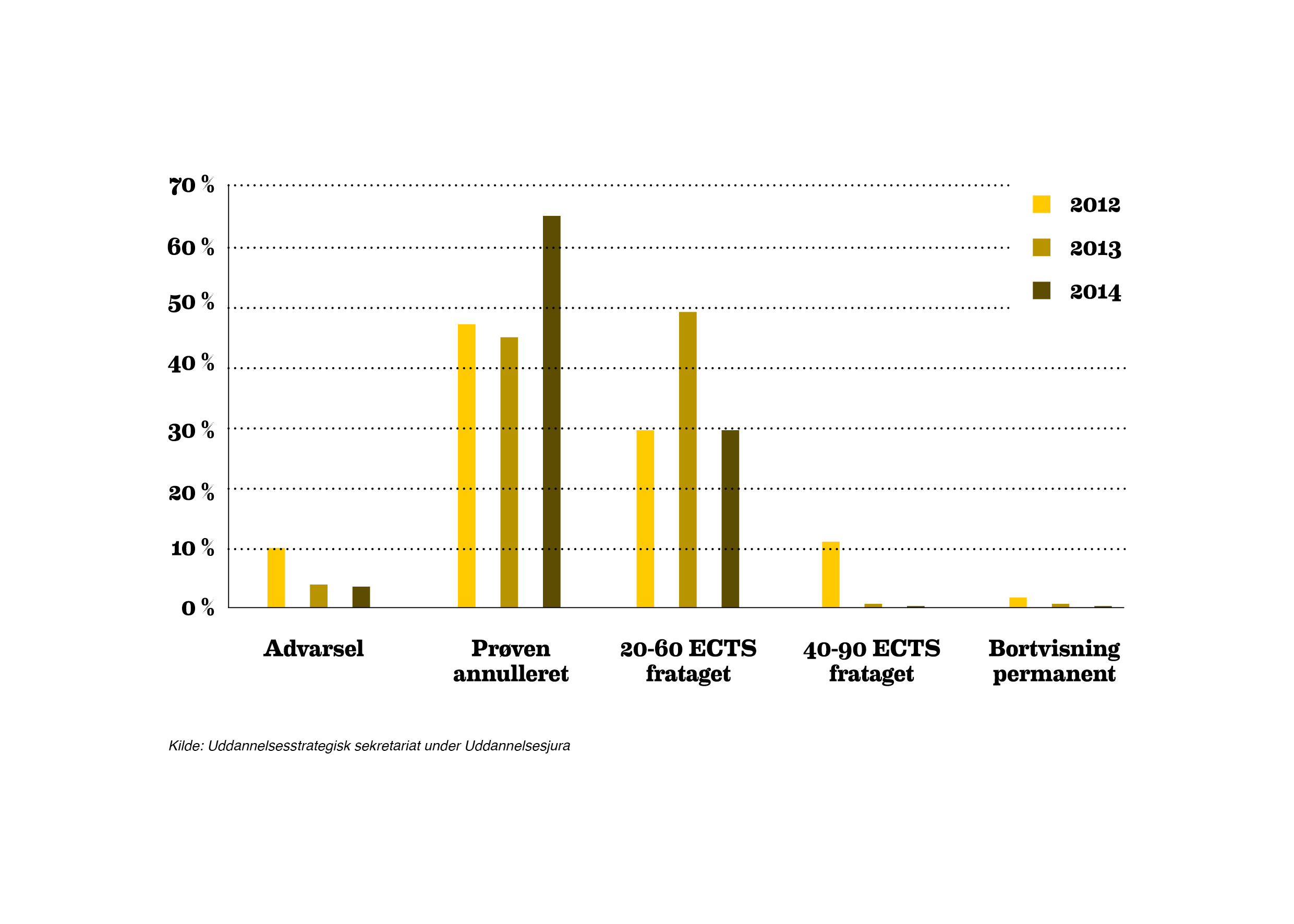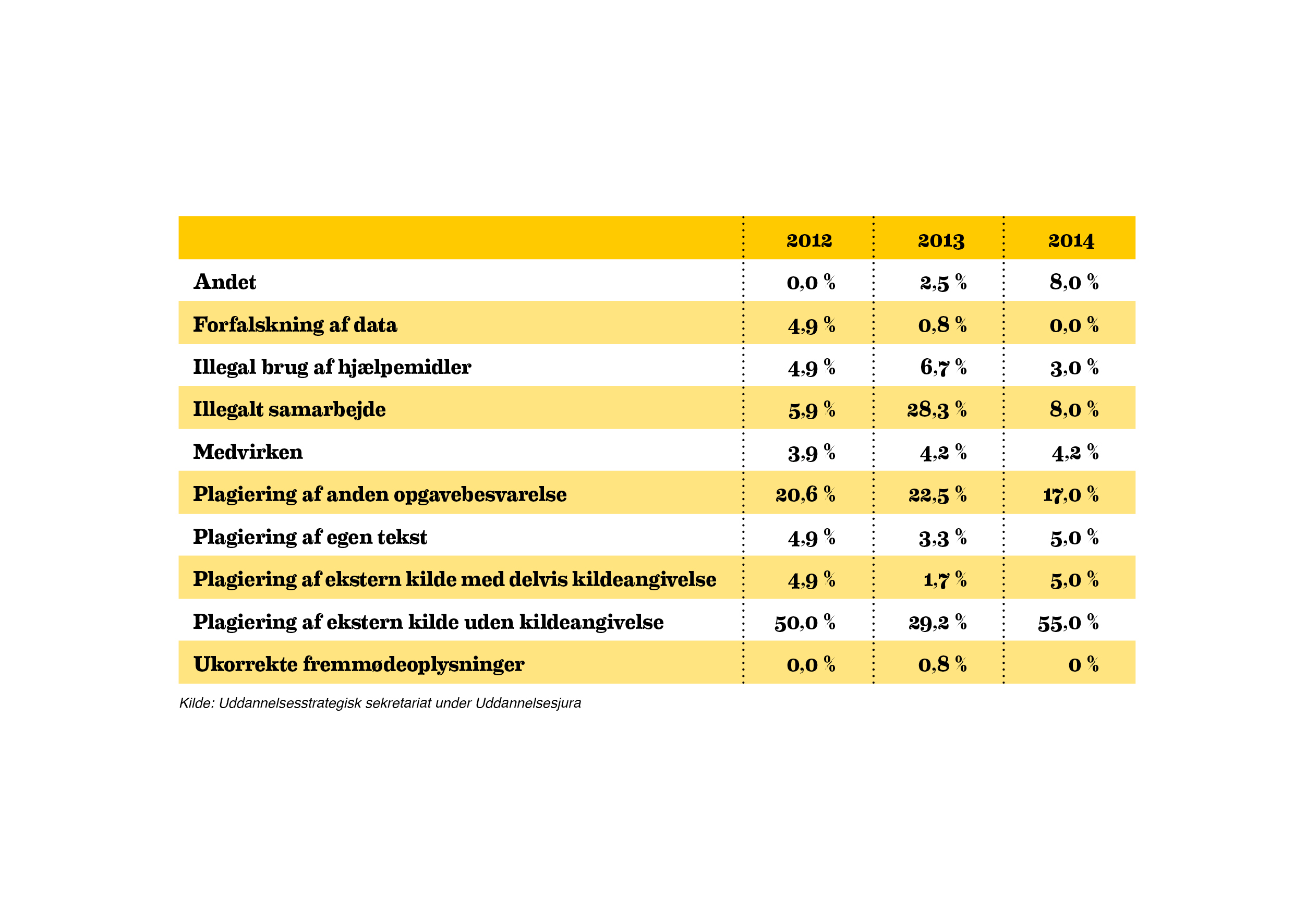Significantly more students caught cheating at exams at AU
More and more students are caught cheating at exams. This is shown by statistics released by Educational Law, which is the administrative unit that handles these cases and which meets the students who are under suspicion of cheating at an exam.



"Compared with last year and the year before, we have seen a significant increase in the number of cases regarding cheating at exams," says Deputy Director Kristian Thorn from AU Student Administration and Services.
The statistics show that the number has almost doubled, from 110 cases in 2012 to 122 cases in 2013 and 209 in 2014.
More teachers reporting
According to Kristian Thorn one of the reasons for the marked increase in cheating is that more and more teachers are becoming aware of the fact that they have a duty to report suspected cheating – and that more and more of them are actually doing this. In addition, an increased use of the anti-plagiarism software programme URKUND is seen as an important reason for the increase in cases. URKUND supports efforts to combat cheating by comparing exam papers with other known texts from sources including the internet.
The typical case
Kristian Thorn sees a clear pattern in the cases:
"The typical case is one where the student has committed plagiarism from other sources to a greater or lesser extent without source referencing. The sanction depends on a specific assessment of the severity of the offence. Factors such as the scope and intention to cheat have importance here."
Cheating is cheating
Students who are reported for cheating are invited to a meeting in Educational Law, where they can present their own explanation of why they ended up in the situation in question. Here many of the students explain that they were not aware that they had done anything wrong.
But it is the student's own responsibility to be aware of the rules in connection with an exam.
"Cases of cheating will therefore be met with a sanction. At the end of the day, it’s a question of the academic quality and validity of our whole assessment system," says Kristian Thorn.
The mildest sanction is a warning, while others include cancelling an exam or being stripped of ECTS credits. In cases with the hardest sanctions, students can be expelled from the university. On average, this happens once a year at AU.
Kristian Thorn’s advice to students is to get acquainted with the rules, and if in any doubt, to ask the teacher, supervisor, or examiner for advice before submitting an exam paper.
FACTS
"Avoid pitfalls at exams. A guide for students on how to avoid cheating at exams" (pdf.)
388“Cheating at exams – procedures at exams. A guide for university staff” at omnibus.au.dk (pdf.)
Did you know that…
you can find more information about the topic at:
cheating.au.dk
Did you know that…
you must clearly specify your study group as a source in an exam paper if you use notes written jointly by the study group? If you write the group's joint notes into your own paper without stating that this is what you are doing, you are guilty of plagiarism – and thereby cheating at exams.
Source: The “Avoid pitfalls at exams" guide
Did you know that…
giving your own answers to a fellow student in an exam situation is viewed as cheating.
Source: The “Avoid pitfalls at exams" guide
Did you know that…
you must clearly specify your study group as a source in an exam paper if you use notes written jointly by the study group? If you write the group's joint notes into your own paper without stating that this is what you are doing, you are guilty of plagiarism – and thereby cheating at exams.
Source: The “Avoid pitfalls at exams" guide
Did you know that…
giving your own answers to a fellow student in an exam situation is viewed as cheating.
Source: The “Avoid pitfalls at exams" guide
Translated by Peter Lambourne

